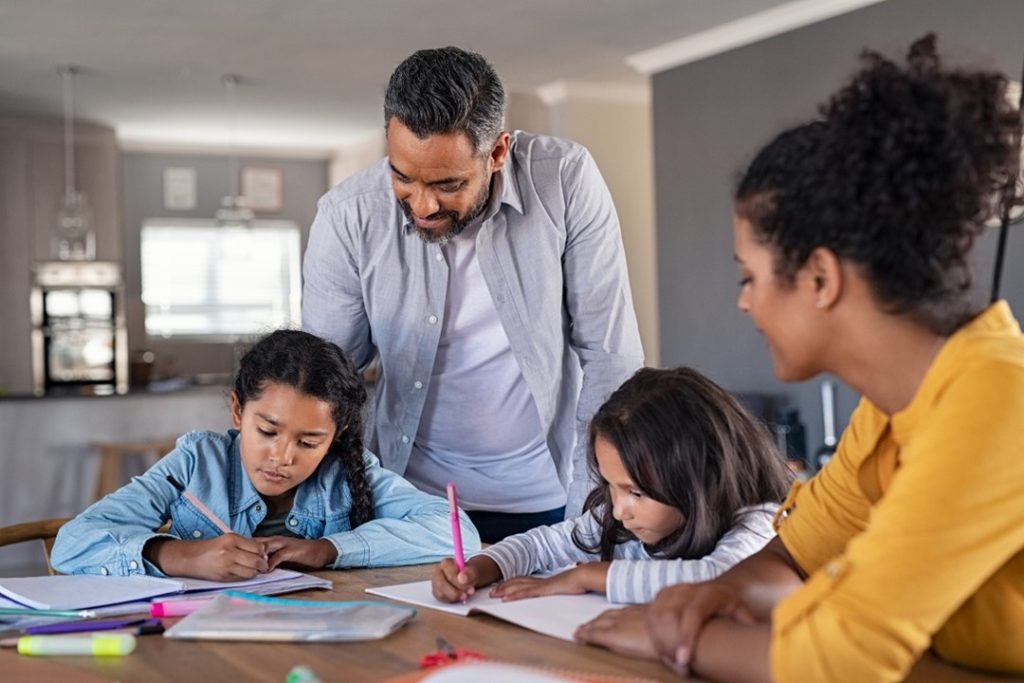7 Essential Tips for Managing Post-Adoption Depression
Managing post-adoption depression involves seeking professional help for therapy and counseling. Focus on self-care with routines and relaxation techniques. Connect with support systems and join groups for understanding. Communicate openly with your partner to build a strong relationship. Establish boundaries and routines for stability. Incorporate mindfulness practices and be patient with yourself as healing takes time. Tailor your approach to navigate post-adoption challenges effectively.Explore ways to prioritize self-care and emotional well-being in managing post-adoption depression.
Key Takeaways
- Prioritize self-care routines for mental well-being.
- Seek professional therapy or counseling support.
- Join support groups for valuable insight and connection.
- Establish clear boundaries and consistent routines.
- Practice mindfulness and relaxation techniques daily.
Seek Professional Support

If you’re experiencing post-adoption depression, consider seeking professional support from a therapist or counselor. Therapy benefits individuals by providing a safe space to explore and understand their emotions, offering coping strategies, and developing healthier ways to manage stress. Counseling options vary, including individual therapy, group therapy, family therapy, and online counseling.
Individual therapy focuses on one-on-one sessions between you and a therapist, allowing for personalized support tailored to your specific needs.
Group therapy involves sharing experiences with others who may be going through similar challenges, fostering a sense of community and understanding.
Family therapy can be beneficial for addressing dynamics within the family unit and enhancing communication and support systems.
Online counseling offers convenience and accessibility, allowing you to receive support from the comfort of your own home.
Prioritize Self-Care
You deserve to take care of yourself during this challenging time.
Establishing self-care routines can help you navigate the feelings of post-adoption depression.
Seek professional support to assist you in developing healthy coping mechanisms and set boundaries to prioritize your well-being.

Self-Care Routines Importance
Prioritizing self-care routines is vital in managing post-adoption depression, as it allows you to nurture your mental and emotional well-being during this challenging time. Incorporating daily affirmations and relaxation techniques into your routine can have a significant impact on your mental health and overall outlook.
Taking time for yourself isn’t selfish but rather an essential aspect of self-care strategies that can help you navigate the complexities of post-adoption depression.
Engaging in daily affirmations can provide a positive mindset, reminding you of your worth and capabilities. These affirmations can counter negative thoughts and build resilience.
Additionally, practicing relaxation techniques like deep breathing, meditation, or gentle yoga can help reduce stress and anxiety, promoting a sense of calmness and clarity.
Seeking Professional Support
Incorporating seeking professional support as an essential component of your self-care routine when managing post-adoption depression is crucial. Therapy benefits individuals coping with post-adoption depression by providing a safe space to explore emotions, develop coping strategies, and work through challenging thoughts.
Counseling options range from individual therapy to support groups specifically tailored to adoptive parents, offering diverse avenues for seeking help. Therapy benefits extend beyond just providing a listening ear; they include structured sessions that can assist in identifying triggers, improving communication within your family unit, and enhancing your overall mental well-being.
Professional counselors are equipped to guide you through the complexities of post-adoption depression, offering tools and techniques to navigate this challenging period effectively. When considering counseling options, explore different therapists or support groups to find the right fit for your needs. Remember that seeking professional support is a proactive step towards prioritizing your mental health and well-being during this demanding time.
Setting Boundaries for Self
Establishing clear boundaries for yourself is essential in prioritizing self-care when managing post-adoption depression. Self-care boundaries are fundamental to maintain personal space and protect your emotional well-being.
It’s okay to say no to additional responsibilities or social engagements if you’re feeling overwhelmed. Setting aside time for yourself each day, whether it’s for a walk, reading a book, or simply relaxing, can help recharge your batteries.
Personal space is important for your mental health. Create a physical space in your home where you can retreat and unwind. Communicate your needs to your family or partner, so they understand the importance of giving you space when necessary.
Remember, self-care isn’t selfish; it’s necessary for you to be the best version of yourself for your adopted child.
Prioritizing self-care through setting boundaries for yourself is a powerful tool in managing post-adoption depression. By valuing your own needs and personal space, you can better navigate the challenges that come with adoption and nurture a healthy and balanced mindset.
Connect With Support Groups

Consider joining support groups to connect with others who understand and can provide valuable insight and encouragement during your post-adoption journey. Online communities offer a convenient way to interact with peers facing similar challenges. These virtual spaces provide a platform for sharing experiences, seeking advice, and receiving support from individuals who can relate to your feelings.
Engaging in group therapy or attending counseling sessions can also be beneficial. These structured environments offer a safe space to express your emotions, learn coping strategies, and develop healthy ways to navigate the complexities of post-adoption depression.
Support groups can play an essential role in helping you feel less isolated and more empowered as you navigate through this challenging period. By connecting with others who’ve walked a similar path, you can gain a sense of belonging and understanding that may not be readily available elsewhere.
Communicate Openly With Your Partner
Remember that you and your partner are a team in this journey. Opening up lines of communication can help both of you express your feelings and concerns.
Partner Support Communication
Openly communicating with your partner is vital in managing post-adoption depression and fostering a supportive environment for both of you. Your partner understanding your feelings and experiences is essential during this challenging time. To guarantee effective communication, consider implementing various strategies.
First, set aside dedicated time to talk openly and honestly about your emotions, concerns, and needs. Encourage your partner to share their thoughts as well, fostering a reciprocal exchange of feelings and support.
Utilize active listening techniques, such as paraphrasing what your partner has said to show understanding and validate their feelings. Practice empathy by putting yourself in each other’s shoes, acknowledging the validity of your partner’s emotions even if they differ from your own.
Additionally, be mindful of non-verbal communication cues like body language and tone of voice, as these can convey messages as powerful as words.
Shared Coping Strategies
Engage in open and honest communication with your partner to develop shared coping strategies for managing post-adoption depression together. Healthy coping mechanisms are essential during this pivotal time, and having a supportive partner can make a significant difference.
Talk openly about your feelings, fears, and struggles, and encourage your partner to do the same. By sharing your emotions and experiences, you can better understand each other’s perspectives and work together towards finding effective ways to cope.
Building a strong support network with your partner is vital in dealing with post-adoption depression. Lean on each other for emotional support, reassurance, and understanding. Create a safe space where you can openly express your thoughts and concerns without judgment.
Collaborate on self-care routines, such as regular exercise, meditation, or therapy sessions, to promote mental well-being for both of you.
Establish Routine and Boundaries

Establishing a consistent routine and setting clear boundaries can be instrumental in managing post-adoption depression effectively. Adopting a child can bring joy and fulfillment, but it also comes with its challenges. By establishing consistency in your daily activities and maintaining structure within your household, you can create a sense of predictability and stability that can help alleviate feelings of overwhelm and anxiety.
Start by creating a daily schedule that includes regular mealtimes, bedtime routines, and time for bonding activities with your child. This routine can provide a sense of security for both you and your child, fostering a strong foundation for your relationship.
Setting boundaries is equally important; clearly communicate expectations and limits to establish a harmonious environment at home.
Practice Mindfulness and Relaxation Techniques
Incorporate mindfulness and relaxation techniques into your daily routine to help manage post-adoption depression effectively. Mindfulness exercises, such as deep breathing, meditation, or yoga, can help you stay present and calm amidst the challenges you may be facing. Taking a few moments each day to focus on your breathing or engage in a brief meditation can provide a sense of clarity and peace.
Relaxation techniques, like progressive muscle relaxation or listening to soothing music, can help alleviate feelings of stress and anxiety. By intentionally relaxing your body and mind, you can reduce the physical and emotional tension that often accompanies post-adoption depression.
Creating a designated time each day for these practices can be beneficial in establishing a sense of routine and self-care. Whether it’s in the morning to start your day off on a positive note or in the evening to unwind before bed, prioritizing mindfulness and relaxation can have a significant impact on your overall well-being during this challenging time.
Give Yourself Grace and Time

Take the time to be gentle with yourself and allow for patience as you navigate through the challenges of post-adoption depression. It’s vital to give yourself grace and recognize that healing takes time.
Engaging in a meditation practice can be incredibly beneficial during this period of adjustment. Through mindfulness and breathing exercises, you can create moments of peace and calm amidst the emotional whirlwind you may be experiencing.
Embarking on a self-compassion journey is also paramount. Treat yourself with the same kindness and understanding you’d offer to a friend facing a difficult situation. Acknowledge your feelings without judgment and remind yourself that it’s okay to not feel okay all the time.
Set realistic expectations for your progress and be forgiving if things don’t always go as planned.
Frequently Asked Questions
How Can I Manage Feelings of Guilt After Adopting?
When managing feelings of guilt after adopting, remember you’re not alone. Coping strategies like journaling, therapy, and self-compassion can help. Seek support from friends, family, or support groups to navigate these emotions with understanding and care.
Is It Normal to Have Mixed Emotions Post-Adoption?
Feeling a mix of emotions post-adoption is completely normal. Coping strategies like journaling and self-care can help. Seek support from loved ones or a therapist to navigate these feelings. Remember, you’re not alone in this journey.
What if My Partner Doesn’t Understand My Struggles?
If your partner doesn’t understand your struggles, open up. Seek therapy together or individually. Communication is key. Support groups can offer understanding. Remember self-care; your well-being matters. Together, you can navigate this challenging time.
Can Adopting a Pet Help With Post-Adoption Depression?
Adopting a pet can provide valuable emotional support through pet therapy. Having a furry companion can boost your mood, reduce stress, and offer unconditional love. Consider adding a pet to your life for added comfort and companionship.
How Can I Balance Work and Self-Care During This Time?
During this challenging time, focus on setting boundaries at work to prioritize self-care. Practice effective time management to make sure you have moments for yourself. Lean on your support system for encouragement and help when needed.
Conclusion
Remember, managing post-adoption depression is a journey that takes time and effort. By seeking professional support, prioritizing self-care, and connecting with support groups, you’re taking important steps towards healing.
Remember to communicate openly with your partner, establish routine and boundaries, practice mindfulness, and give yourself grace and time.
You aren’t alone in this struggle, and with the right tools and support, you can navigate through this challenging time.
Take care of yourself and know that brighter days are ahead.

Hey there! 👋 I’m a proud mom and passionate writer, sharing my parenting journey. 📝 Join me as I navigate the ups and downs of motherhood, offering tips, advice, and a sprinkle of humor along the way. 🌟







